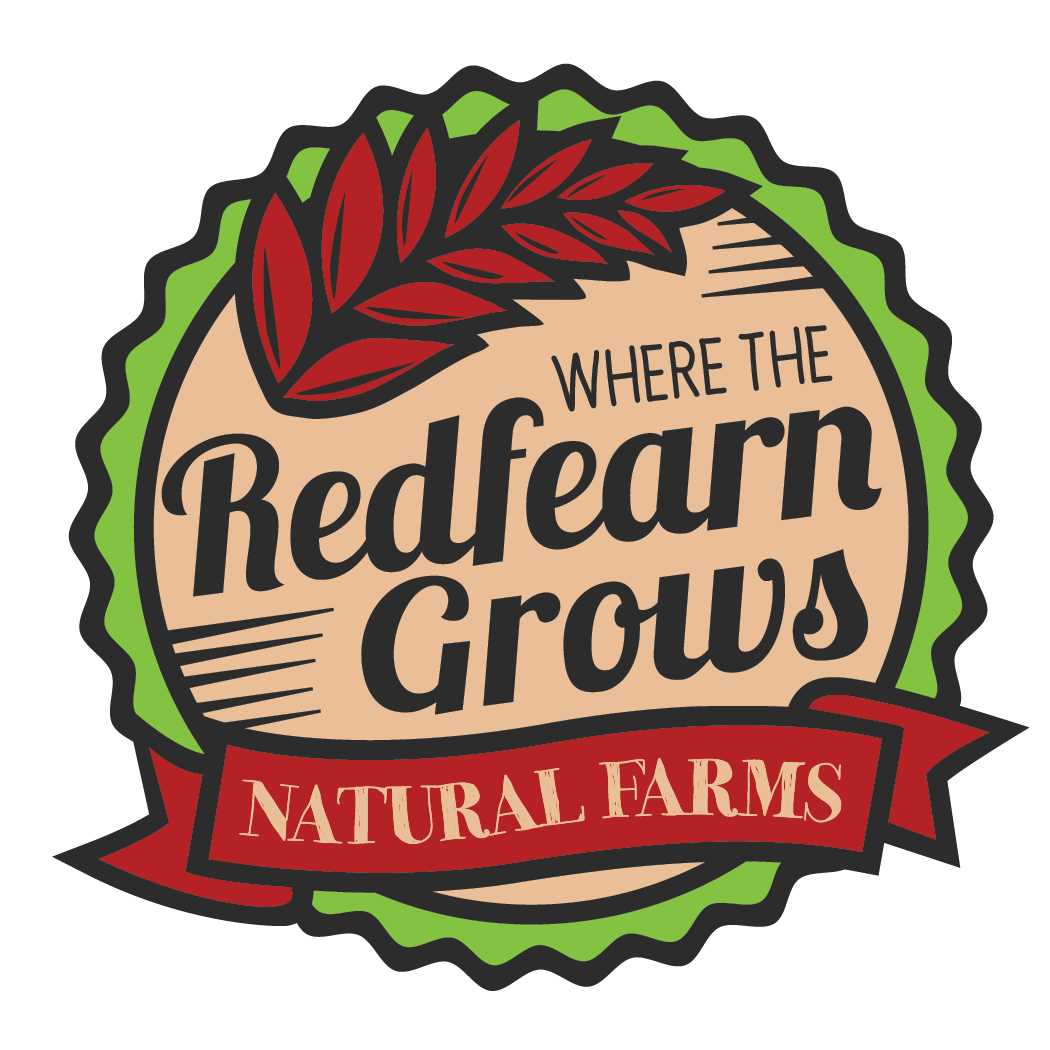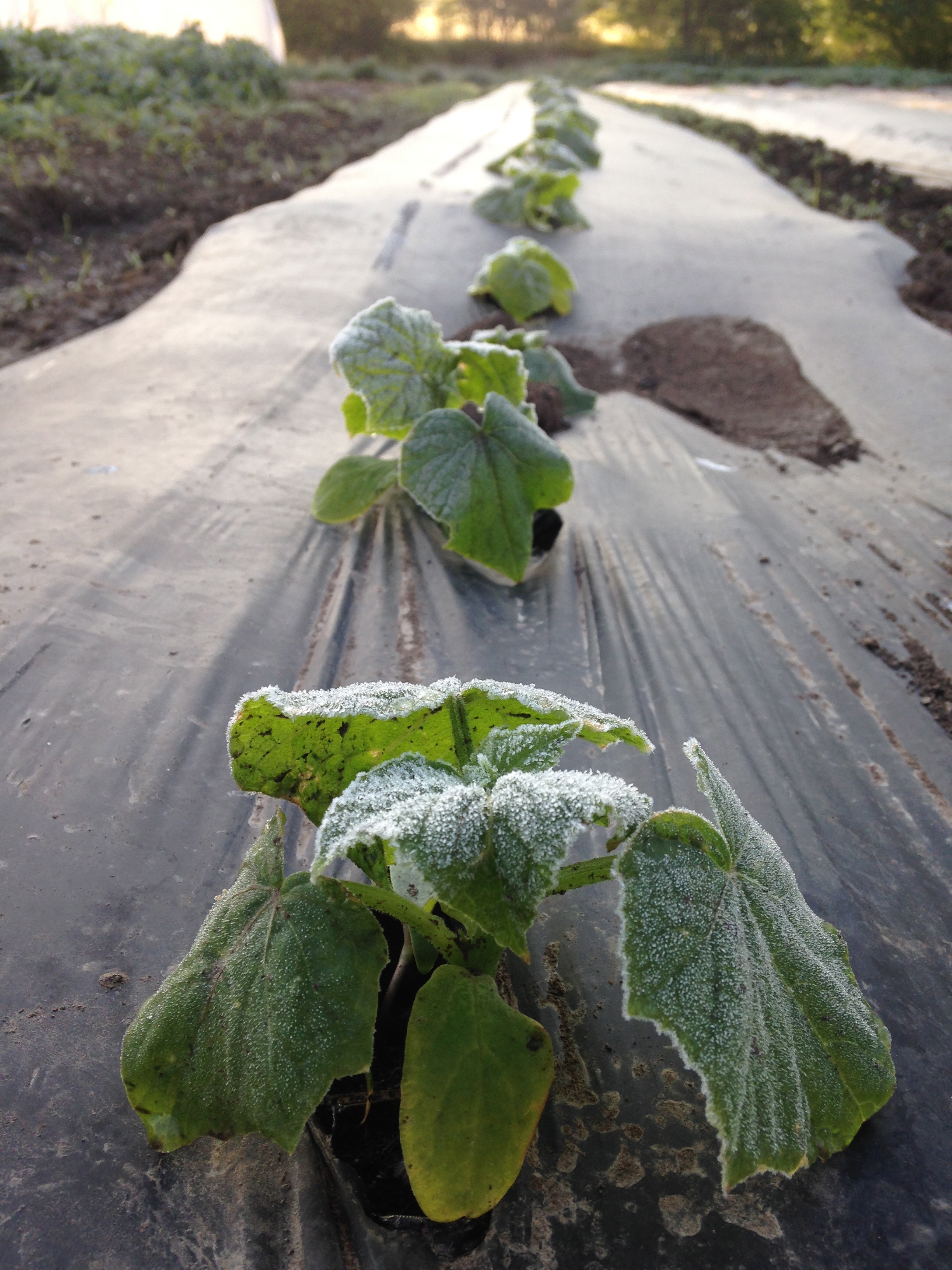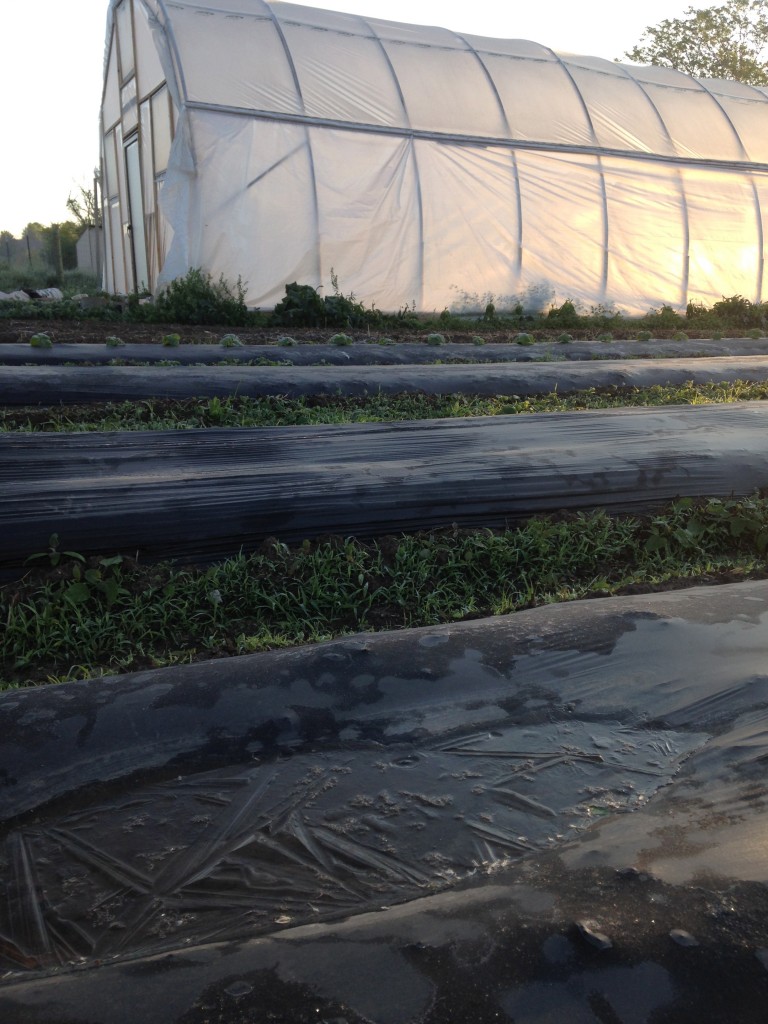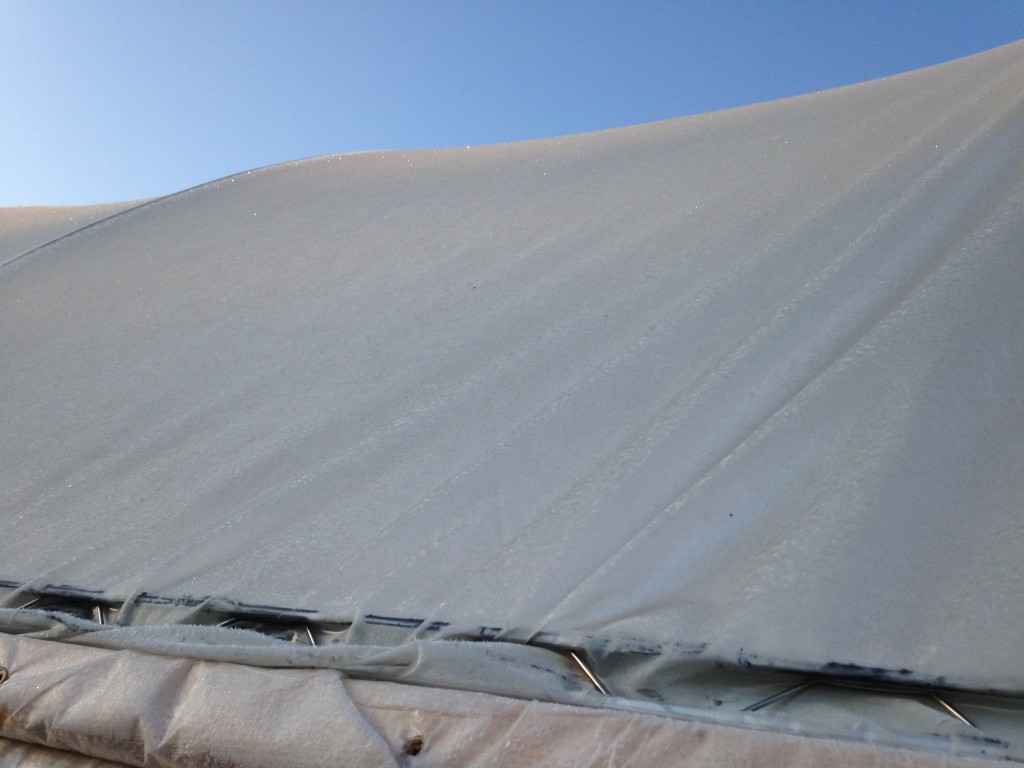Well, it could have been worse. We were fortunate that most of our frost sensitive plants were still in the high tunnel (unheated greenhouse). The forecast was for a low of 39 degrees but we hit 32 at the Redfearn Farm in Independence, MO this morning, May 16, 2014. One of those times when procrastination saves the day! I had planned to plant most of the tomatoes, peppers and cucumbers last weekend because we should be safe at this point, but ran out of time and then decided to hold off when I saw the forecast, just in case. According to the USDA, the average date of last frost for Kansas City, Missouri is April 15. There is certainly a chance of vegetable frost damage after April 15 in the Kansas City area, so I definitely don’t plant these plants until at least after May1, but generally May 15 is considered extremely safe in Kansas City.
So what vegetables had frost damage? We lost about 75 cucumber plants as well as the first planting of green beans to frost damage. I’m not sure about the Fennel bulbs yet. The potatoes were all growing nicely, and will probably be set back quite a bit. Frost should not have killed the potatoes outright, but their green foliage above ground will die, reducing and delaying the harvest.
The good news is, most of the crops in the ground do not suffer vegetable frost damage because they are frost tolerant early season crops. So, Redfearn Farm CSA members, don’t despair; we’ve still got a lot to look forward to in the coming weeks. Spinach, kale, broccoli, kohlrabi, cabbage, arugula, lettuce, baby salad greens, green onions, leeks, and sugar snap peas will be fine (though some of these have not reached harvestable size yet because of the cool stretch in early spring).
Some vegetables are in jeopardy: radishes, Turnips, and Fennel. We’ll see how they respond as the day warms up.
Those of you with gardens out there, I hope you didn’t have too many of the frost sensitive tomatoes, cucumbers, peppers and eggplants outside. If you did, I hope you had a bucket over them!
In this day of hyper-control, where we control our surroundings with climate control through web-enabled thermostats and have information at our fingertips 24-7, and Amazon Prime brings nearly any product to our door in two days, it’s easy to think that we are masters of our own destiny. But when you garden or farm, you realize how little is actually within your control. Even with all the advancements we’ve made technologically, weather is outside of our hands–God’s great equalizer, if you will. “He sends the rain [or the frost or the lack of rain] on the righteous and the unrighteous.” I think that’s part of what I love about farming and being close to the land. You can only trust in yourself so far, but you are reminded on a daily basis that your destiny is not squarely riding on your own shoulders.
Some would call it Chance or Fate; I would call it the Providence of God, but so much of our lives (besides farming) is beyond our direct control. Think of your own success in school or work. Did you earn your own genes or intellect? Did you choose your family upbringing and the character traits you learned/inherited? Did you choose the country in which you were born and the opportunities that were in your path for education, employment, or even political or religious instruction and ideals? In America, we like to think we are self-made men and women. This is the land of idealistic individualism where we convince ourselves that we are the masters of our fate. But are we really?
Though I’m waxing philosophical here, I really do think that there is Truth to be gained from working the land, watching the seasons, and taking the good and the bad that we encounter. It’s humbling to see your work ruined by forces outside of your control. When I think of farmers I know, most of them are pretty humble people, probably because of all of these types of experiences. We could all learn a thing or two from them (I’m still a transitioning farmer, so don’t gage farmer’s humility from me:)).
Our CSA members, by sharing in the risk of farming get a chance to experience this sense of humility before forces greater than themselves.
We’re in this together and unfortunately this turn of events will delay the enjoyment of some of our favorite crops as well as probably cut down on the selection for the first few weeks, but God-willing we’ll bounce back and enjoy a big harvest later in the season.
Thanks for your understanding and for learning these lessons with us!



